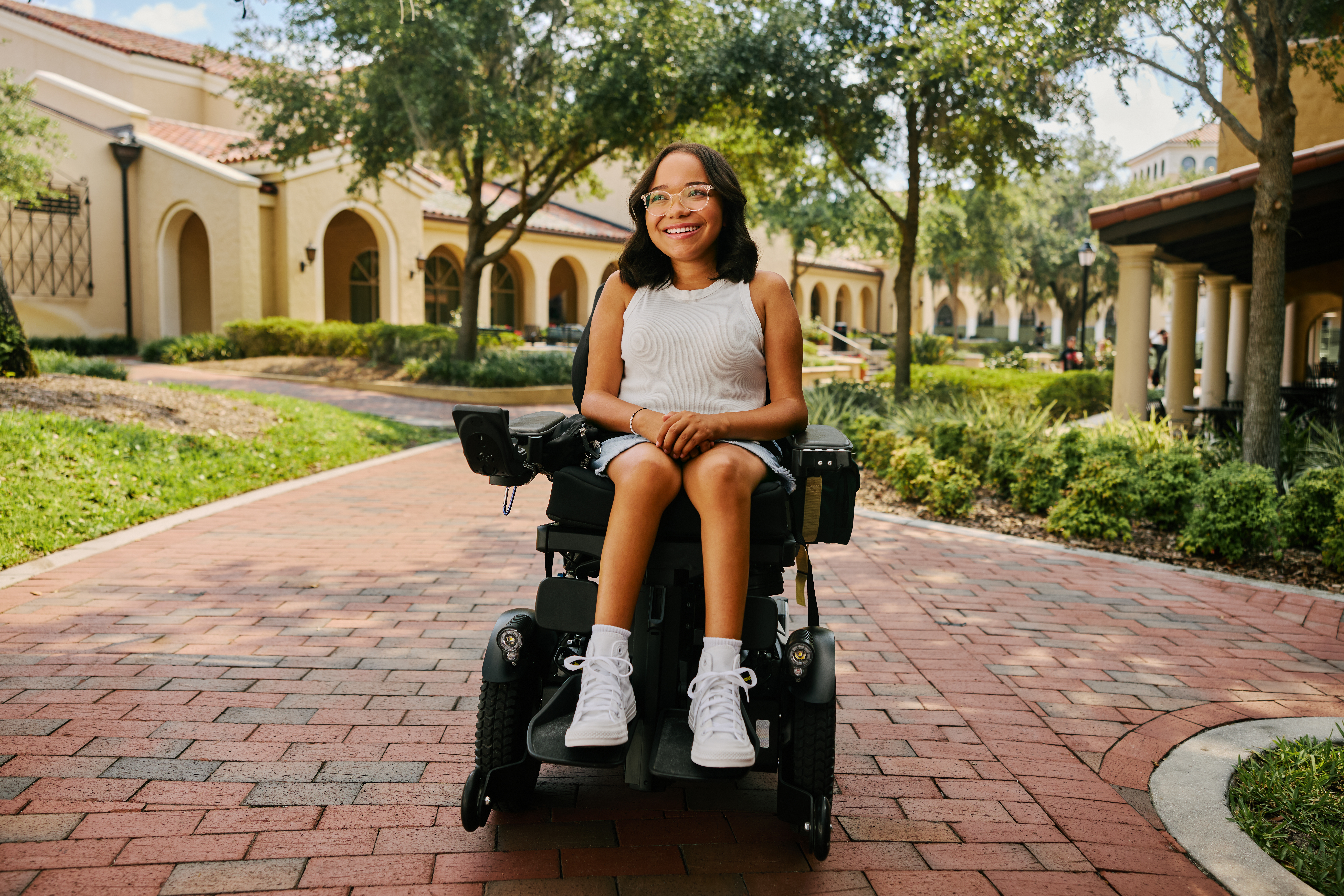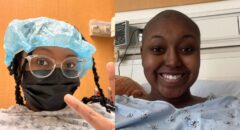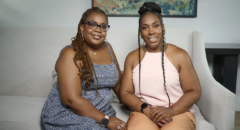
Spinal muscular atrophy (SMA) is a rare genetic condition that affects the muscles people use every day to move, breathe, and even swallow. It occurs because the body is missing a functional SMN1 gene, which normally produces a crucial protein that maintains the health of motor neurons—the nerve cells responsible for controlling muscle movement. Without sufficient protein, these neurons gradually die off, leading to muscle weakness that can range from mild to severe.
How SMA shows up can look very different from one person to the next. That’s because another gene, called SMN2, can produce a small amount of the needed protein, offering some backup support. The more copies of SMN2 a person has, the less severe their symptoms may be. Still, once motor neurons are lost, they can’t grow back, which means people with SMA often need extra support—like help with breathing, nutrition, or mobility—to live as fully and independently as possible.
For many young people with SMA, this reality shapes, but doesn’t define, their lives. One of them is Siara, an 18-year-old filmmaker who has turned her journey with SMA into a story of resilience, creativity, and strength.
A Passion for Authentic Stories
Born with SMA Type 3, a genetic disorder inherited from both parents, Siara is now a film student at Full Sail University with dreams of directing or working behind the camera. For her, filmmaking is more than a career choice—it’s a mission.
“I noticed just recently, while doing my projects and going through old footage, that I always had a camera in my hands growing up, even before I realized what film was,” Siara tells BlackDoctor.org.
As she got older, she noticed that few characters in movies looked like her. When they did appear, they were often reduced to side roles rather than being the main character.
“I watched a documentary called Crip Camp about disability advocacy, and that really sparked my interest. I wanted to go into filmmaking, create more stories, and show that people in wheelchairs are not just side characters—we have a voice and a story to tell. That’s what I want to show for other people in wheelchairs as well,” she shares.
The Importance of Representation
As a filmmaker, Siara’s goal is to create projects that make others feel seen and allow them to recognize themselves in the characters on screen.
“Movies draw so much emotion, and when you watch them, you want to feel connected to a character in some way. For people in wheelchairs—and I could be wrong, I don’t want to assume for everyone—but I think we want that too: to see people like us on screen and to connect to a character in a personal way. That’s very important,” she explains.
Recognition and First Wins
Siara made her debut as a filmmaker by winning Best First-Time Filmmaker at the International Online Film Festival.
“When I found out I won, I was extremely shocked,” she recalls. “There were over 200 films in each of the four categories. Watching all of them, I thought, ‘There’s no way.’”
Her winning short film, “I Am Me”, blends humor with a personal message.
“It’s a short film about a girl explaining her story, kind of like me explaining my story, but from a different perspective. It shows that there’s more to life than just a chair. Even though there are obstacles, and yes, some things are limited or harder, there’s still so much more to life. I may not experience everything the same way as others, but I still experience it—just differently,” she says.

Changing the Conversation
As a member of Gen Z, Siara is proud to see her generation driving progress and changing the conversation—especially on social media—when it comes to accessibility and representation.
“I think the thing about our generation is that we’re quite loud—we like to use social media to share our voices a lot more than other generations did. I think that’s one way we’re making sure we’re seen and heard all the time,” she says. “We’re building a large community together and working to show we’re more than just our disabilities. We’re people too, with personalities, and we have so much to teach.”
Love, Misconceptions, and SMA
Now in a committed long-distance relationship with her able-bodied boyfriend, Siara has learned firsthand how many misconceptions still exist about love and dating with a disability, but she’s determined to challenge them and show that connection and romance aren’t defined by ability.
“I think one thing a lot of people assume is that being in a relationship with someone who has a disability means that person is just ‘being nice’ for helping you. It makes it seem like the disability is an inconvenience, when it’s not at all—it’s just part of you. In any relationship, with or without disability, the important thing is finding the right person, someone who will care for you and help with your needs. That’s what matters,” Siara shares.
She’s also faced doubts about pursuing a career in film due to her SMA.
“I think a lot of misconceptions about SMA—at least for me personally—are that it’s also a mental disability instead of just a physical one. People often try to dumb things down or limit me with certain tasks, assuming I can’t do them. For example, holding a camera. A lot of people were cautious about me going into film because, from the outside, it looks physically demanding. But making my first film proved that it’s possible, even if people assume otherwise,” she adds.
‘SMAshing Her Limits’
When Novartis invited her to join their SMAshing My Limits campaign, Siara was thrilled.
“When I first heard about the campaign, I thought it was amazing because there aren’t a lot of companies that really talk about patients and their stories. They usually just focus on the medical side. I thought it was great that Novartis wanted to tell our stories in a way that was personal and showed that we’re more than just our disability. That’s why I was really happy when they asked me to participate,” she says.
Through the campaign, she’s gained a better understanding of herself.
“In my everyday life, I usually don’t talk about my disability or SMA that often. But through this campaign, I’ve personally grown a lot—becoming more open and confident about sharing my story. Before, I was very shy about it, but now I’m extremely proud of it,” she shares.
RELATED: I Was Hit by a Car at 48 MPH, Here’s How I’m Redefining Disability
Life with SMA
For Siara, SMA requires planning and navigating the daily challenges that the condition brings. Fortunately, medicine has made living with the condition easier.
“I get fatigued a lot easier throughout my days, so I really have to plan ahead. The new medicines help me go out for longer days and do more in general, which is very helpful,” she says
Her advice for others living with SMA or other disabilities is not to listen to the limits people place on you.
“Do what you believe in. Everyone has a purpose here. Stay true to yourself and don’t let others define you — define yourself,” she says.
Looking Ahead
Siara is currently finishing another short film, which she plans to submit to festivals, while also working on new scripts.
“My proudest moments so far are my films. Every time I get to show someone my work, or even do camera work for live events at school, it makes me happy. My work brings joy to others, and that’s what makes me happiest—seeing others enjoying life too,” she concludes.









